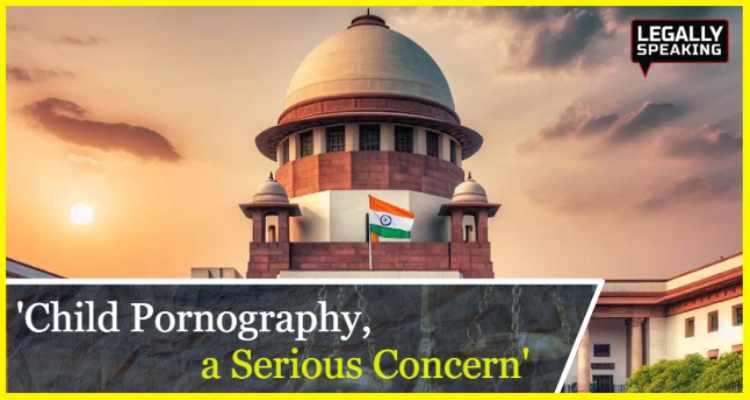
The Supreme Court of India has remarked that while it might not be considered an offense for a child to watch pornography, the involvement of children in pornography is a matter of serious concern and may indeed constitute an offense.
The Bench
This observation was made by a bench comprising Chief Justice D Y Chandrachud and Justice J B Pardiwala while deferring the verdict on an appeal lodged by NGOs – Just Rights for Children Alliance of Faridabad and New Delhi-based Bachpan Bachao Andolan -contesting a Madras High Court decision. These organizations are dedicated to child welfare.
The bench stated, “A child watching porn may not be an offence but children being used in pornography may be an offence and is a matter of serious concern.”
Madras HC
The Madras High Court had previously ruled that merely downloading and watching child pornography does not violate the POCSO Act and the Information Technology law. On January 11, it dismissed criminal proceedings against a 28-year-old man accused of downloading pornographic content involving children on his mobile phone.
Senior advocate H S Phoolka, representing the two organizations, challenged the high court’s decision, citing provisions of the POCSO Act and the Information Technology Act.
The bench emphasized that if one receives such material, it must be deleted or destroyed to avoid legal repercussions under relevant laws. Continuously possessing child pornographic material without deletion or destruction could constitute an offense, the bench noted.
In response to arguments from the counsel for the accused, who claimed the material was automatically downloaded on WhatsApp, the bench responded.
The Supreme Court granted permission to the National Commission for Protection of Child Rights (NCPCR) to intervene in the case and submit written arguments by April 22.
The Chief Justice said, “Arguments concluded, and judgement reserved.”
Earlier, on March 11, the Supreme Court had criticized the Madras High Court’s ruling, agreeing to consider the NGOs’ appeal against it. The high court had suggested that instead of punishing children for watching porn, society should educate them.
The top court had also sought responses from S Harish, a resident of Chennai, and two police officers from Tamil Nadu.
The high court had quashed the criminal case against Harish under the POCSO Act and the Information Technology Act, stating that simply downloading and watching child pornography does not constitute an offense. However, it expressed concern over children viewing pornography, emphasizing the need for education and counseling.




